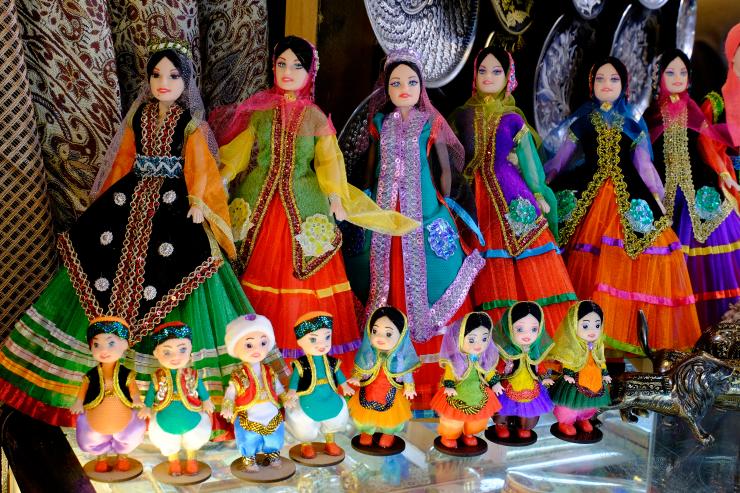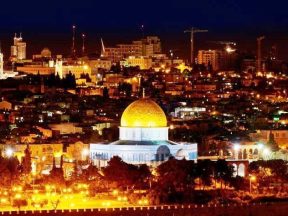Iran. Ayatollahs, bombs & Barbies.

Democratic states are all alike; every autocratic state is autocratic in its own way. Democracies are alike in featuring universal suffrage, striving for a body of robust accountable institutions and political practice, and sustaining a vibrant civil society. Autocracies, however, have strikingly distinctive features.
Take Iran and China. Despite common features for example, Iran like China now wants spies to harass and report back on dissidents in the UK and alternates brutal repression of dissent with reform and diplomatic activity. Putin, of course, brazenly carries out political assassinations of exiles, and opposition leaders such as Alexei Navalny. But Iran’s religious history has created its own unique political dynamics.
Reformists can become President in Iran. Towards the end of Muhammad Khatami’s time as Iran’s President, 1997-2005, I used to visit Tehran for formal sessions of interfaith dialogue, a rare opportunity to observe the interaction of religion and politics. In 2003, seeking better relations with the USA, Khatami offered G.W. Bush a “grand bargain deal” signed off by the Supreme Leader, Ali Khamenei.
Prolonged behind-the-scenes negotiations at the UN had led the Iranians, in return for the lifting of debilitating economic sanctions, to offer to end support for Hamas and to pressure Hezbollah to stand down its military wing. A way would have been opened for Iran to join the WTO. Bush did not reply – arguably a costly lost opportunity.
President Reagan went on a six-day visit to China in 1984. In comparison, after the capture of diplomat hostages during the revolutionary fervour of Ayatollah Khomeini’s takeover in 1979, and after the West’s support for Iraq in the war against Iran (1980-1988), the Islamic Republic became what might be called the USA’s official enemy.
Bush, who included Iran alongside North Korea and Saddam Hussein’s Iraq in his “axis of evil”, was in thrall to a neo-con clique, led by his Vice-President Dick Cheney and Donald Rumsfeld (Secretary of Defense). They were pushing for regime change and had destabilisation plans. Iran was not about to be visited by a US President.
The Iranian State, its constitution, politics and power structures, are complex, opaque and sui generis. The Foreign Minister, for example, is appointed by the President, but the Judiciary and Supreme Court by the Supreme Leader, the name given to Ayatollah Khomeini and his successor. Ali Khamenei (84), the ultra-authoritarian Supreme Leader for 35 years since 1989, with the IRCG, the Islamic Revolutionary Guards Corps as his military base, can block Presidential initiatives.
The constitution makes tension between elected and religious
authority inevitable.
Both President Khatami and President Hassan Rouhani 2013-2021, who had studied in Britain, were by Iranian standards reformists. They were both succeeded by hardliners. The White House was partly to thank for provoking reactionary policy change. Mahmoud Ahmadinejad, mayor of Tehran, who followed Khatami in 2005, was something of a religious fanatic, anti-American and anti-Israel. Ebrahim Raisi, elected President in 2021 after Rouhani, was a protégé of the Supreme Leader and a former member of a four-man prosecution committee which in 1988, according to Amnesty International, executed political prisoners in their thousands, many by hanging from cranes.
Whilst President, Rouhani achieved a major diplomatic breakthrough. In 2015 The Joint Comprehensive Plan of Acton (JCPOA) limited Iran’s development of nuclear power to peaceful purposes – as had Khatami when President. Signed by China, Russia, France, Germany, UK, the EU and the USA, the agreement gave Rouhani a timetable for the lifting of sanctions which had been wrecking Iran’s economy.
At a reception in London a few years ago I asked former President Khatami about Shi’a teaching on nuclear weapons. ‘Haram’ (forbidden) he said. ‘Haram for use?’ I queried. ‘Haram for use and possession’, he replied with emphasis in English. We await the day Patriarch Kirill of Moscow declares that Russia’s nuclear weapons are forbidden.
A Guardian Council appointed by the Supreme Leader selects nominees for the Presidential elections. In 2017, Ibrahim Raisi, by then Chief Justice of Iran, stood against Rouhani who was seeking a second term and was trounced getting 38% of the vote against Rouhani’s 57% on a 73% voter turnout with 3% of votes invalid. But in 2021 Raisi won the presidential elections with 62% of the vote on a 48% – post-revolution lowest – turn-out with 13% of the votes invalid.
What had happened in the interim? Trump had happened: providing a damaging example of American impact on Iran’s internal affairs. After only a few months in office, Trump refused certification for lifting sanctions on Iran and, on 8 May 2018, withdrew from the JPCOA. Rouhani and the reformers were discredited, the hardliners rejoiced, Raisi had a virtually clear run at the presidency, the centrifuges whirled away again seeking to produce enough weapons grade uranium for a bomb. The American neo-cons had undermined the Iranian reformers.
What of Iranian civil society? The world witnessed mass protests in 2022-2023 after Mahsa Amini died from police beating. The women and men of Women, Life, Freedom, were brutally repressed by Raisi’s murderous security apparatus. The protesters’ courageous defiance and greater numbers than those facing Putin’s mafia in Russia shocked the Iranian government. Iran’s civil society has paid a high price for Bush and Trump’s policies. Iranian foreign and external security policy may have positive nationalist support and tacit approval.
Iranian culture is, of course, strikingly different from that of China and Russia. I witnessed a telling little cultural clash between Iran’s governed and government in 2002. To counteract the attraction and influence of western Barbie dolls the religious authorities announced the launch of Iranian dolls, Dara and Sara, dressed in traditional fashion in keeping with Islamic values.
Guided by the wife of a friend I plunged into the Tehran bazaar, crowded with women, black hijabs and chadors all around, intending to buy the new dolls to take home for the grandchildren. I discovered a silent revolt against the velayat e-faqih, the rule of the mullahs. No Dara and Sara. Lots of Barbies.
Weeks after my return home a letter arrived inviting me to the Iranian embassy. I had written an article critical of Iran’s human rights record ending on a light note with my failed quest for Dara and Sara. I guessed a ban on future entry to Iran awaited me. At the Embassy I was ushered into a large hall and seated at an isolated table with a covering cloth and flowers – hiding a microphone I assumed. There, as I expected, my host upbraided me at length for my ‘negativity about Iran’. Then he lifted the tablecloth and presented me with Dara and Sara. Urbane, unexpected and sophisticated diplomacy.
Today Iran is in the hands of particularly dangerous hardline characters. But in the future, there may be more opportunities for liberalising change than in other autocracies. For this is not Putin’s Russia or Xi’s China. There are still Khatamis and Rouhanis in the wings. Twenty years ago, the autocratic, black and traditional world of Dara and Sara could dialogue with the democratic, pink and modern world of Barbie. Let’s hope one day another opportunity for dialogue and negotiation will arise and not be thrown away – however bleak the picture is today.(Photo:The various kinds of local-style dolls are sold in the Grand Bazaar Market Imam Square of Isfahan for tourists as souvenirs. These dolls dress up like an Iranian people. Shutterstock/ Chaton Chokpatara)
Ian Linden
Professor at St Mary’s University,
Strawberry Hill, London.



